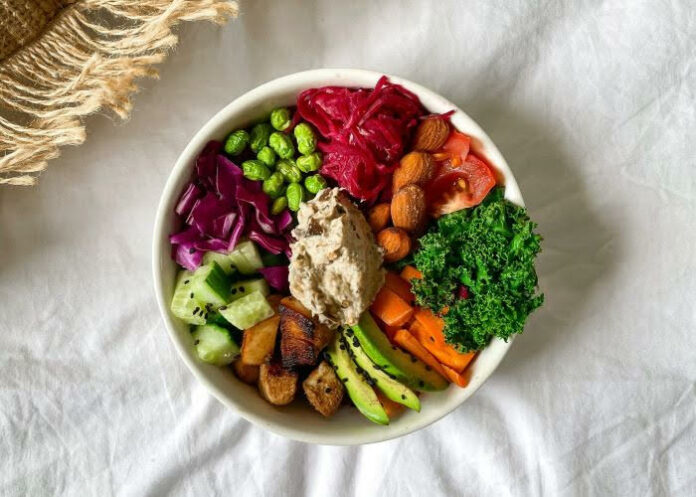Proteins in plant-based meat alternatives may not be as accessible to human cells as those from real meat, a study has suggested.
While plants rich in protein, like soy beans, are commonly used worldwide, researchers, including those from the Ohio State University in the US, say it is unclear how much of the nutrient makes it into human cells.
In the study, published in the Journal of Agricultural and Food Chemistry, scientists assessed whether human cells grown in a lab absorbed the same quantities of the protein building blocks peptides from meat alternatives as they do from chicken.
The findings may lead to new ingredients that might increase the uptake of nutrients from plant-based meat products, researchers say.
To mimic the look and texture of real meat, plant-based substitutes are usually made by dehydrating plants into a powder and mixing them with seasonings.
These mixtures are then typically heated, moistened and processed through an extruder to produce plant-based meat, often thought to be more nutritious since the plants used to make them are high in protein and low in undesirable fats.
However, the researchers said the proteins in substitutes may not break down into peptides as well as those from meats.
In this study, they analysed the quantity of peptides absorbed from a model meat alternative by human cells and compared this to the amount the cells absorbed from a piece of chicken breast (CB).
They created a model meat alternative (MA) made of soy and wheat gluten with the extrusion process. When cut open, they say the material had long fibrous pieces inside, just like chicken.
They then cooked pieces of the substitute and chicken meat, and broke them down using an enzyme humans use to digest food.
They found that peptides and their amino acid building blocks from the meat substitutes were less water-soluble than those from chicken, and were also “not absorbed as well by human cells”.
“The amino acid composition showed fewer essential and non-essential amino acids in the MA permeate than in the CB permeate,” they wrote in the study.
Future studies could help identify ingredients that can help boost the peptide uptake of plant-based meat substitutes, they concluded.
Study details
Characterisation and Cellular Uptake of Peptides Derived from In Vitro Digestion of Meat Analogues Produced by a Sustainable Extrusion Process
Da Chen, Diana Rocha-Mendoza, Shengyue Shan, Zachary Smith, Israel García-Cano, Julie Prost, Rafael Jimenez-Flores and Osvaldo Campanella.
Published in Journal of Agricultural and Food Chemistry on 22 June 2022
Abstract
Whether proteins in meat analogues (MAs) have the ability to provide equivalent nutrition as those in animal meat remains unknown. Herein, a MA was produced by high-moisture extrusion using soy and wheat proteins. The physicochemical properties, in vitro digestion, and cellular uptake of the released peptides were systematically compared between the MA and the chicken breast (CB). The MA showed a higher hardness but a lower degree of texturization than the CB. After simulated digestion, soluble peptides in the MA had a higher molecular weight and higher hydrophobicity. No observable cytotoxicity or inflammatory response to Caco-2 cells was found for both MA and CB digests. The former exhibited less permeability of peptides across Caco-2 cells. Liquid chromatography with tandem mass spectrometry found that the identified peptides in MA and CB digests contained 7–30 and 7–20 amino acid residues, respectively, and they became shorter after cellular transportation. The amino acid composition showed fewer essential and non-essential amino acids in the MA permeate than in the CB permeate.
See more from MedicalBrief archives:
Vegan diet significantly alters metabolism and depletes nutrients in the young
Vegetarians and vegans: Lower heart disease risk, higher risk of stroke
Eating mostly plant-based foods may be linked to better heart health

